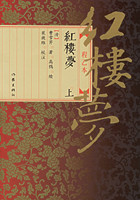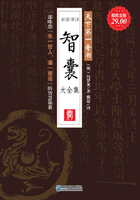I would excuse the performance of this translation if it were all my own; but the better, though not the greater, part being the work of some gentlemen who have succeeded very happily in their undertaking, let their excellences atone for my imperfections and those of my sons. I have perused some of the Satires which are done by other hands, and they seem to me as perfect in their kind as anything I have seen in English verse. The common way which we have taken is not a literal translation, but a kind of paraphrase; or somewhat which is yet more loose, betwixt a paraphrase and imitation. It was not possible for us, or any men, to have made it pleasant any other way. If rendering the exact sense of these authors, almost line for line, had been our business, Barten Holyday had done it already to our hands; and by the help of his learned notes and illustrations, not only Juvenal and Persius, but, what yet is more obscure, his own verses might be understood.
But he wrote for fame, and wrote to scholars; we write only for the pleasure and entertainment of those gentlemen and ladies who, though they are not scholars, are not ignorant--persons of understanding and good sense, who, not having been conversant in the original (or, at least, not having made Latin verse so much their business as to be critics in it), would be glad to find if the wit of our two great authors be answerable to their fame and reputation in the world. We have therefore endeavoured to give the public all the satisfaction we are able in this kind.
And if we are not altogether so faithful to our author as our predecessors Holyday and Stapleton, yet we may challenge to ourselves this praise--that we shall be far more pleasing to our readers. We have followed our authors at greater distance, though not step by step as they have done; for oftentimes they have gone so close that they have trod on the heels of Juvenal and Persius, and hurt them by their too near approach. A noble author would not be pursued too close by a translator. We lose his spirit when we think to take his body. The grosser part remains with us, but the soul is flown away in some noble expression, or some delicate turn of words or thought. Thus Holyday, who made this way his choice, seized the meaning of Juvenal, but the poetry has always escaped him.
They who will not grant me that pleasure is one of the ends of poetry, but that it is only a means of compassing the only end (which is instruction), must yet allow that without the means of pleasure the instruction is but a bare and dry philosophy, a crude preparation of morals which we may have from Aristotle and Epictetus with more profit than from any poet. Neither Holyday nor Stapleton have imitated Juvenal in the poetical part of him, his diction, and his elocution. Nor, had they been poets (as neither of them were), yet in the way they took, it was impossible for them to have succeeded in the poetic part.
The English verse which we call heroic consists of no more than ten syllables; the Latin hexameter sometimes rises to seventeen; as, for example, this verse in Virgil:-
"Pulverulenta putrem sonitu quatit ungula campum."
Here is the difference of no less than seven syllables in a line betwixt the English and the Latin. Now the medium of these is about fourteen syllables, because the dactyl is a more frequent foot in hexameters than the spondee. But Holyday (without considering that he writ with the disadvantage of four syllables less in every verse) endeavours to make one of his lines to comprehend the sense of one of Juvenal's. According to the falsity of the proposition was the success. He was forced to crowd his verse with ill-sounding monosyllables (of which our barbarous language affords him a wild plenty), and by that means he arrived at his pedantic end, which was to make a literal translation. His verses have nothing of verse in them, but only the worst part of it--the rhyme; and that, into the bargain, is far from good. But, which is more intolerable, by cramming his ill-chosen and worse-sounding monosyllables so close together, the very sense which he endeavours to explain is become more obscure than that of his author; so that Holyday himself cannot be understood without as large a commentary as that which he makes on his two authors. For my own part, I can make a shift to find the meaning of Juvenal without his notes, but his translation is more difficult than his author. And I find beauties in the Latin to recompense my pains; but in Holyday and Stapleton my ears, in the first place, are mortally offended, and then their sense is so perplexed that I return to the original as the more pleasing task as well as the more easy.
This must be said for our translation--that if we give not the whole sense of Juvenal, yet we give the most considerable part of it; we give it, in general, so clearly that few notes are sufficient to make us intelligible. We make our author at least appear in a poetic dress. We have actually made him more sounding and more elegant than he was before in English, and have endeavoured to make him speak that kind of English which he would have spoken had he lived in England and had written to this age. If sometimes any of us (and it is but seldom) make him express the customs and manners of our native country rather than of Rome, it is either when there was some kind of analogy betwixt their customs and ours, or when (to make him more easy to vulgar understandings) we gave him those manners which are familiar to us. But I defend not this innovation; it is enough if I can excuse it. For (to speak sincerely) the manners of nations and ages are not to be confounded; we should either make them English or leave them Roman. If this can neither be defended nor excused, let it be pardoned at least, because it is acknowledged; and so much the more easily as being a fault which is never committed without some pleasure to the reader.
Thus, my lord, having troubled you with a tedious visit, the best manners will be shown in the least ceremony. I will slip away while your back is turned, and while you are otherwise employed; with great confusion for having entertained you so long with this discourse, and for having no other recompense to make you than the worthy labours of my fellow-undertakers in this work, and the thankful acknowledgments, prayers, and perpetual good wishes of, My Lord, Your Lordship's Most obliged, most humble, and Most obedient servant, JOHN DRYDEN.















